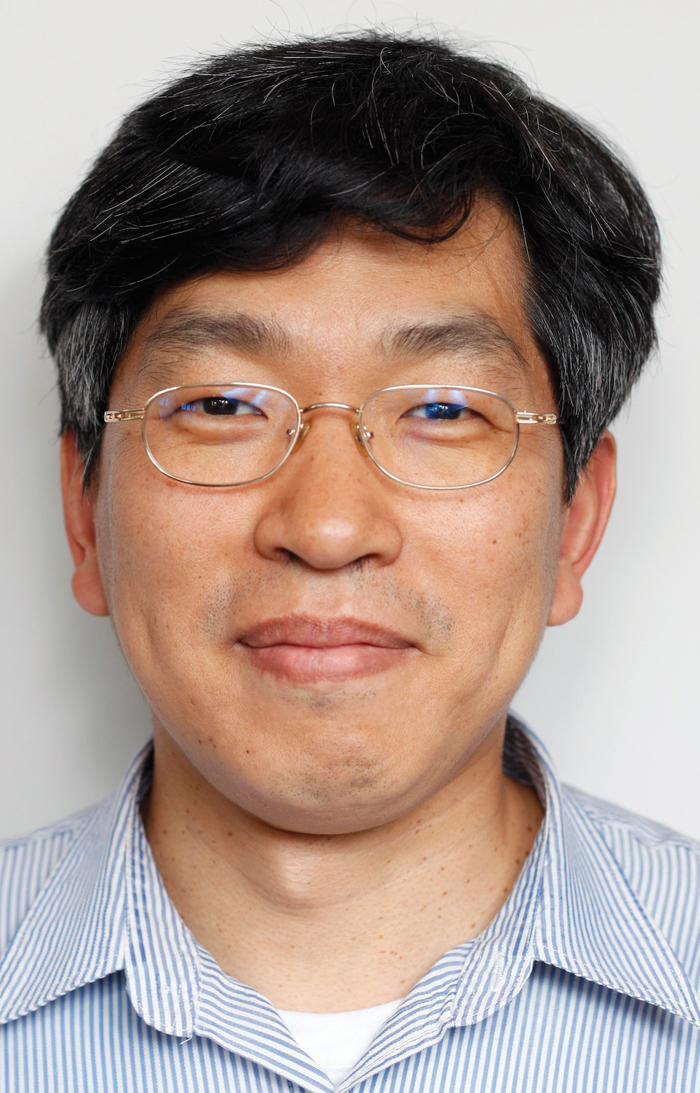Posted: May 19, 2016
Power in Church Leadership: Exploring our shared commitment to doing church together
As a global communion of Anabaptist-related churches, we share a common commitment to doing church together. We also acknowledge that the church needs leaders who take responsibility for guiding and shepherding the flock. Yet we know that in our diverse contexts of church leadership, power gets exercised in many different ways. In this issue of Courier/Correo/Courrier, writers from across our fellowship discuss the different ways in which Anabaptists approach issues of power in church leadership – the struggles and challenges, as well as the blessings and benefits.
Not So With Us
Less than two decades ago, Anabaptism emerged into Christian life in South Korea. In 1996, a group of like-minded Christians – sharing an emergent vision of Anabaptism – broke a long-term linkage with their mother churches, which were mostly Protestant. Having spent much time in intense Bible study and having done substantial research on church history and theology, they discovered what they wanted was to start a new church founded on the New Testament.
Breaking with the mainline churches was one thing; starting a new church was quite another. Anabaptism’s reputation was still negative at that time, and so embracing its vision was like going against the tide of mainstream tradition. Even more counter-culturally, their goal was to go all the way back to the beginning of the first-century church!
Since that time, the Anabaptist network in South Korea has grown gradually, as people are drawn to the fresh idea of what it means to be church.
Some may ask: why did these like-minded individuals have to leave their home churches and start a new church movement? While many issues caused the separation, one of the key issues – perhaps the most crucial factor – was their understanding of the very nature of church. For them, the church was not an institutionalized denomination which itself creates an inevitably unequal power structure. Instead, they envisioned the church as the body of Christ, in which power is equitably shared among sisters and brothers.
Power is something that human beings naturally desire. Throughout history, nobody has been free from the lure of power; even Jesus was tempted by Satan to use his power. Those within the church have likewise not been exempted; in fact, many church leaders are tempted to exercise their authority to rule over others.
This is exactly what happened to Jesus’ disciples 2,000 years ago. They argued about who was the greatest among them. And two of them, James and John, more specifically requested special seats for themselves – one at the left and one at the right hand of Jesus in his glory (Mark 10:37). Even their mother wanted Jesus to give them power: “Grant that one of these two sons of mine may sit at your right and the other at your left in your kingdom” (Matthew 20:21). Such requests troubled the other disciples and compeled them to act indignantly toward James and John. No wonder they argued about this issue!
Ultimately, Jesus called them together and said: “You know that those who are regarded as rulers of the Gentiles lord it over them, and their high officials exercise authority over them. Not so with you. Instead, whoever wants to become great among you must be your servant, and whoever wants to be first must be slave of all. For even the Son of Man did not come to be served, but to serve, and to give his life as a ransom for many” (Mark 10:42-45).
It is embarrassing to see that Christians at times seek power and fame to maintain the status quo. I say this not because I am better than others, but because I too am tempted by my inner self to seek worldly power, unless I am controlled by the Spirit of God. Unfortunately, too few people recognize the corrupting influence of power, and too few realize how such power can be misused by so-called “leaders” within the church.
One likes to be called “leader.” We all have a tendency to ask for such a title – and for the power and fame that accompany it. But what we are trying to get is not the kind of power that the world teaches. Instead, we seek the power we receive from God when we are in weakness yet made alive by God’s empowering Spirit. This is the power to be a servant, not a leader. This is the power to be humble, not to control. This is the power to love our enemies, not to kill them. This is the power to lay down even our lives for others, just as our Lord came to give his life as a ransom for many.
Let us not fall into the devil’s trap, in which we become convinced that we are receiving a reward from God just because we happen to be in a greater position. The cost of discipleship carries no such reward. Instead, it offers a cup and a cross: “You will drink the cup I drink and be baptized with the baptism I am baptized with, but to sit at my right or left is not for me to grant. These belong to those for whom they have been prepared” (Mark 10:40).
May God grant us the power to free ourselves from worldly expectations, and to rely on his power even in our weakness.
 Kyong-Jung Kim serves as the MWC Northeast Asia Regional Representative. Since 2004 he has served as director of the Korea Anabaptist Center, a ministry of the Anabaptist churches of South Korea.
Kyong-Jung Kim serves as the MWC Northeast Asia Regional Representative. Since 2004 he has served as director of the Korea Anabaptist Center, a ministry of the Anabaptist churches of South Korea.

Comments: